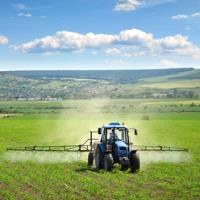(LUXEMBOURG) – The EU offers few incentives for farmers to reduce their dependency to pesticides, and has been unable to substantially reduce and control risks associated to pesticides use by farmers, says a new report.
The report from the European Court of Auditors finds that several EU Member States have been late in fully transposing the directive on sustainable use of pesticides, while incentives for farmers to adopt alternative methods remain weak.
In addition, the auditors say the European Commission is unable to precisely monitor the effects or risks resulting from pesticide use.
Plant protection products (“pesticides”) are used to protect crops against harmful organisms, pests and diseases. They include insecticides, fungicides and herbicides, which can put pressure on the environment and pose risks to human health. Since 1991, the EU has had common rules on their authorisation and use, and in 2009 it adopted the directive on sustainable use of pesticides. The auditors assessed whether EU action in this respect had been successful.
According to the auditors, several EU Member States were late in transposing the directive into national law, and infringement procedures were initiated in 2012 against two of them. The auditors also found that the Commission had not properly checked the completeness or correctness of transposition. For example, not all Member States transposed into national law the requirement for farmers to apply integrated pest management (IPM). Since 2016, however, the Commission has taken increased action to enforce implementation of the directive on sustainable use of pesticides, acknowledge the auditors.
Along with the directive, IPM has been made mandatory for farmers. IPM means only using pesticides if prevention and other methods fail or are not effective. However, there are no clear criteria or specific requirements to help ensure enforcement and assess compliance. In parallel, a category of ‘low-risk plant protection products’ has been created. However, only 16 out of 487 substances, or 3%, have been made available for use to date, which is insufficient, say the auditors.
They also note that there are few incentives for farmers to reduce their dependency to pesticides. In particular, applying IPM principles is not included as a condition for receiving CAP payments, the auditors point out.
“The European Commission has been unable so far to substantially reduce and control risks associated to pesticides use by farmers”, said Samo Jereb, the Member of the European Court of Auditors responsible for the report. “An opportunity to properly address this issue was offered by a new Common Agricultural Policy coming into force in 2021, but was unfortunately missed.”
The auditors found that statistics on active substances and their usage published by the Commission (Eurostat) were not detailed enough to be useful. Nor was the data provided by Member States sufficiently harmonised or up-to-date.
Finally, although some Member States have developed national indicators for measuring risks and impact, these are not comparable across the EU. Initial Commission attempts to develop such indicators at EU level were unsuccessful due to the lack of relevant data. The first two EU-wide risk indicators were only introduced in November 2019, ten years after the adoption of the directive, and neither of these indicators takes into account how, where and when pesticides are used. The Commission therefore still lacks a robust evidence base to assess whether the directive has achieved the EU’s objective of making pesticide use sustainable, the auditors conclude.
As the European Commission is currently evaluating the legislation in this policy area against a backdrop of increasing public and parliamentary concern, the auditors recommend:
- verifying integrated pest management at farm level;
- allowing integrated pest management to be linked to payments under the new CAP;
- improving statistics on plant protection products; and
- developing better risk indicators.



